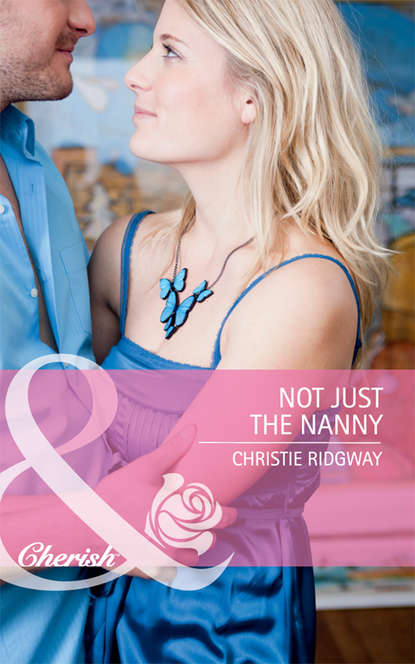
Полная версия
The Billionaire Next Door

The Billionaire Next Door
Jessica Bird

www.millsandboon.co.uk
MILLS & BOON
Before you start reading, why not sign up?
Thank you for downloading this Mills & Boon book. If you want to hear about exclusive discounts, special offers and competitions, sign up to our email newsletter today!
SIGN ME UP!
Or simply visit
signup.millsandboon.co.uk
Mills & Boon emails are completely free to receive and you can unsubscribe at any time via the link in any email we send you.
For my family, with love
Contents
Chapter One
Chapter Two
Chapter Three
Chapter Four
Chapter Five
Chapter Six
Chapter Seven
Chapter Eight
Chapter Nine
Chapter Ten
Chapter Eleven
Chapter Twelve
Chapter Thirteen
Chapter Fourteen
Chapter Fifteen
Chapter Sixteen
Chapter Seventeen
Chapter Eighteen
Epilogue
Chapter One
“No, really, I heard he was coming tonight.”
The young investment banker looked at his buddy, Freddie Wilcox. “O’Banyon? Are you crazy? He’s in the middle of the Condi-Foods merger.”
“I asked his assistant.” Freddie tweaked his Hermès tie. “It’s on his calendar.”
“He must never sleep.”
“Gods don’t have to, Andrew.”
“Well, then, where is he?”
From their vantage point in a corner of the Waldorf-Astoria’s ballroom, they sifted through the crowd of Manhattan highfliers, looking for the man they called The Idol.
Sean O’Banyon was their boss’s boss and, at thirty-six, one of Wall Street’s big dogs. He ran the mergers-and-acquisitions arm of Sterling Rochester, and was capable of leveraging billions of dollars at the drop of a hat or killing a mega deal because he didn’t like the numbers. Since arriving on the Street, he’d engineered one perfectly executed corporate acquisition after another. No one had his track record or his instincts.
Or his reputation for eating hard-core financiers for lunch.
Man, folks would have called him SOB even if those hadn’t been his initials.
He was indeed a god, but he was also a thorn in the side of the I-banking world’s old-school types. O’Banyon was from South Boston, not Greenwich. Drove a Maserati not a Mercedes. Didn’ care about people’s Mayflower roots or European pedigrees. With no family money to speak of, he’d gone to Harvard undergrad on scholarship, got his start at JP Morgan then put himself through Harvard Business School while doing deals as a consultant.
Word had it that when he lost his temper, his Southie accent came back.
So, yes, the white-shoe, country-club set couldn’t stand him…at least not until they needed him to find financing for their corporations’ expansion plans or share buy-backs. O’Banyon was the master at drumming up money. In addition to all the bank funds at his disposal, he had ins with some serious private sources like the great Nick Farrell or the now-governor of Massachusetts, Jack Walker.
O’Banyon was who everyone wanted to be. A rebel with immense power. An iconoclast with guts and glory. The Idol.
“Oh…my God, it’s him.”
Andrew whipped his head around.
Sean O’Banyon walked into the ballroom as if he owned the place. And not just the Waldorf, all of New York City. Dressed in a spectacular pin-striped black suit and wearing a screaming red tie, he was sporting a cynical half grin. As per usual.
“He’s wearing all Gucci. Must have cost him five grand before tailoring.”
“Couch change. I heard he spent a quarter million dollars on a watch last year.”
“It was a half million. I checked at Tourneau.”
O’Banyon’s hair was as dark as his suit and his face was nothing but hard-ass angles and arched eyebrows. And his build matched his attitude. He topped out at six-four and it wasn’t padding that filled out his shoulders. Rumor had it he did triathlons for kicks and giggles.
As the crowd caught sight of him, a swarm condensed and closed in, people pumping his hand, clapping him on the shoulder, smiling. He kept walking, the powerbrokers and A-listers forming his wake.
“He’s coming over here,” Andrew hissed.
“Oh God, is my tie okay?”
“Yeah. Is mine—”
“Fine.”
“I think I’m going to crap in my pants.”
Lizzie Bond stared at the stripped hospital bed and thought of the man who’d lain in it these last six days. The heart monitor he’d been on and the IV that he’d needed and the oxygen feed were all gone. So too the cardiac crash cart that had failed to revive him forty-two minutes ago.
Eddie O’Banyon was dead at the age of sixty-four. And he had died alone.
She shifted her eyes to a window that overlooked Boston’s Charles River.
As a nurse, she was accustomed to being in patient rooms, used to the tangy smell of disinfectant and the bland walls and the air of quiet desperation. But she had come to this room as a friend, not as a health-care professional, so she was seeing things through different eyes.
Like how empty and quiet it was.
She glanced back to the bed. She hated that Mr. O’Banyon had died alone.
She’d wanted to be at his side, had promised him she would be, but when the final myocardial infarction had occurred, she’d been working at the health clinic in Roxbury all the way across town. So she had missed saying goodbye. And he had dealt with whatever pain that had come to claim him by himself.
When the call that he had passed came through to her, she’d left her day job immediately and screamed through traffic to get here. Even though the dead had no schedules to keep and he would never know if she’d hadn’t rushed, it had seemed right to hurry.
“Lizzie?”
Lizzie turned around. The nurse standing in the doorway was someone she knew and liked. “Hi, Teresa.”
“I have his things from when he came in. They were still in the ED.”
“Thanks for bringing them up.”
Lizzie accepted her friend’s personal effects with a sad smile. The plastic bag was transparent, so she could see the well-worn robe and the plaid pajamas Mr. O’Banyon had had on when he’d been admitted around 1:00 a.m. last Sunday.
What a horrible night that had been, the beginning of the end. He’d called her around twelve with chest pains and she’d run up the duplex’s stairs to his apartment. Though he’d been her landlord for two years, he was also a friend and she’d had to call on all her professional training to keep sharp and make the right decision about what to do for him. In the end, she’d called 911 over his objections and not let herself be swayed. The paramedics had come quickly and she’d insisted on riding in the ambulance with Mr. O’Banyon even though he’d tried to tell her he didn’t need the help.
Which had been so like him. Always irascible, always a loner. But he had needed her. His eyes had watered from fear the whole trip from South Boston to Mass General in Beacon Hill and he’d held on to her hand until her fingers had gone numb. It was as if he’d known he wouldn’t be going back out into the world again.
“I know you were the emergency contact,” Teresa said, “but does he have any next of kin?”
“A son. He wouldn’t let me call him though. Said only if something happened.” And something certainly had.
“You’ll get in touch with the son, then? Because unless you’re going to claim the body…”
“I’ll make the call.”
Teresa came over and squeezed Lizzie’s shoulder. “Are you okay?”
“I should have been here.”
“You were. In spirit.” When she started to shake her head, Teresa cut in, “There was no way you could have known.”
“I just…He was alone. I didn’t want him to be alone.”
“Lizzie, you always take such good care of everybody. Remember in nursing school when I fell apart three weeks before graduation? I never would have made it without you.”
Lizzie smiled a little. “You would have been fine.”
“Don’t underestimate how much you helped me.” Teresa went back to the door. “Listen, let me or one of the other girls know if you or that son of his need anything, okay?”
“Will do. Thanks, Teresa.”
After the other nurse left, Lizzie put the plastic bag on the bare mattress and rifled around until she found a battered wallet. As she opened the leather billfold, she told herself that she wasn’t invading Mr. O’Banyon’s privacy. But it still didn’t feel right.
The piece of paper she eventually took out was folded four times and as flat as a pressed leaf, as if it had been in there for quite a while. There was one name on it and a number with a 212 area code.
Guess his son lived in Manhattan.
Lizzie sat down on the bed and took her cell phone out of her purse.
Except she couldn’t call just yet. She had to stitch herself back together a little. At the moment, she felt like a stuffed animal whose side had been torn open and whose padding was leaking.
She glanced back at the bag and was overcome with grief.
Over the past two years, Mr. O’Banyon had become a kind of surrogate father to her. Gruff, prickly and standoffish in the beginning, he’d stayed that way…but only on the surface. As time had passed and his health had declined, he’d gotten as attached to her as she was to him, always asking her when she was coming back to see him, always worried about her driving after dark, always keeping up with how her day went or what she was thinking about. As his heart had grown weaker and weaker, their ties had grown stronger and stronger. Gradually, she’d done more things for him, buying groceries, doing errands, cleaning up, helping him keep all his doctor’s appointments straight.
She’d liked being responsible for him. With no husband or children of her own, and a mother who was too fey to really connect with, Lizzie’s caretaking nature had needed an outlet beyond her job. Mr. O’Banyon had been it.
Clear as day, she pictured him sitting in his Barcalounger in front of his TV, a crossword puzzle balanced on the arm of the chair, his reading glasses down on his nose. He had been so sad and lonely, not that he’d ever shown that outright. It was just…well, Lizzie was a little sad and lonely, too, so she’d recognized the shadows in his eyes as exactly what she saw in her own mirror.
And now he was gone.
She stared down at her cell phone and the piece of paper she’d taken out of his wallet. His son’s name was Sean, evidently.
She started to dial, but then stopped, picked up the bag of Mr. O’Banyon’s things and headed out.
When she talked to the man’s son, she was going to need some fresh air.
Standing in the Waldorf’s ballroom, Sean O’Banyon smiled at Marshall Williamson III and thought about how the guy had tried to blackball him at the Congress Club. Hadn’t worked, but good old Williamson had given it his best shot.
“You’re the pinnacle,” Williamson was saying. “Without peer. You are the man I want on this merger.”
Sean smiled and figured that given the amount of groveling that was going on, Williamson was remembering the blackball thing, too.
“Thanks, Marshall. You call my assistant. She’ll get you in to see me.”
“Thank you, Sean. After all you did for Trolly Construction, I know you—”
“Call my assistant.” Sean clapped Marshall on the shoulder to cut him off because getting stroked was boring. Especially when the sucking up was insincere and business motivated. “I’m going to get a drink. I’ll see you sometime next week.”
As he turned away, he was still smiling. Watching men who’d cut him down eat their pride made up for the social slights he had to deal with. Thing was, there was one and only one golden rule on Wall Street: He who had the gold, or could get it, made the rules. And in spite of his nothing-doing background, Sean was a mine for that shiny yellow stuff.
While he headed for the bar, he looked around the ballroom and saw the crowd for exactly what they were. He was under no illusions that any of these people were his friends. They were his allies or his enemies and sometimes both at the same time. Or they were acquaintances who wanted to have their pictures taken with him. Or they were women who’d been his lovers.
But there was no one here he was particularly close to. And he liked it that way.
“Hello, Sean.”
He glanced to his left and thought, ah, yes, a bridal barracuda. “Hello, Candace.”
The blonde sidled up to him, all pouty lips and big, insincere eyes. She was dressed in a black gown that was so low cut you could almost see her belly button, and her surgically enhanced assets were displayed as if they were up for sale. Which he supposed they were. For the right engagement ring and a generous prenup, Candace would walk down the aisle with a bridge troll.
Her voice was slightly breathless as she spoke. Possibly because of all the silicone on top of her lungs. “I heard you were out in the Hamptons last weekend. You didn’t call.”
“Busy. Sorry.”
She pressed herself against him. “You need to call me when you’re there. Actually, you just need to call me.”
He disengaged himself as if he were peeling free of a coat. “Like I told you a while ago, I’m not your type.”
“I disagree.”
“Haven’t you heard about me?”
“Of course. I read about you in the Wall Street Journal all the time.”
“Ah, that’s business, though. Let me enlighten you about the personal side of things.” He leaned down and whispered in her ear, “I never buy jewelry for women. Or cars or plane tickets or clothes or houses or hotel rooms. And I believe in splitting the check over dinner. Right down to the tip.”
She hauled back as if he’d blasphemed.
He smiled. “I see you get my point. Trust me, you’ll be much happier with someone else.”
As he turned away from her and walked over to the bar, he had to laugh. The thing was, he hadn’t said those things just to get rid of her. They were the God’s honest truth: For him, Dutch was the rule with women.
The minute he’d made his first big chunk of cash, he’d become a target for that kind of predatory female and he’d gotten burned. Back over a decade ago, after having lived for years as the poor relation to his roommates and friends at Harvard, he’d finally put together a deal with a percentage point or two in it for him.
The cash had been an avalanche. More than he could ever have imagined filling his account. And within a week of him throwing some of it around, a very sophisticated blonde, not unlike Candace, had shown up on his doorstep. She’d been everything he’d ever wanted, proof positive that he’d arrived. Elegant, cultured, an antiques dealer with style, he’d felt invincible with her on his arm.
He’d done his best to buy her anything she wanted and she’d been more than happy to trade her presence for the things he got her. At least until she’d found someone who could write even bigger checks. On her way out the door, she’d told him, in her Upper East Side, long-voweled way, that even though he was just a roughneck from South Boston, she could tell he was going places…so he should never hesitate to call her if he was ever in the market for oil paintings.
Lesson learned.
Now, it was easy to pick out women like that, although not because he was a genius at reading minds. Pretty much anyone he met in a dress was after money.
Just like anyone in a suit, too, come to think of it.
After he ordered a Tanqueray and tonic from the bartender, he noticed two young guys edging their way over to him. They were dressed well, real spit and polish, Ivy League shiny, and their faces were composed as if they were prepared to play it cool.
Except both of them were rubbing their right palms on their hips as if they were worried they’d offer him a wet handshake.
“’Evening, Mr. O’Banyon,” the taller one said.
Sean got his T& T and pointed to the guy. “Fred Wilcox. And…Andrew Frick, right?”
The two nodded their heads, clearly astounded he knew their names. But you had to keep up with the FNUGs. Some percentage of them were going to make it and thus become useful, and besides, he liked the look of this pair. Smart eyes, but none of that showboat crap some of the other young hardies tried to pull. Plus, if he remembered correctly, they were both HBS like him.
“How you boys doing tonight?” he said.
They stammered over some social nonsense then fell completely silent as a cloud of perfume wafted in. Sean glanced behind his shoulder and then smiled honestly for the first time since walking into the gala.
“My lovely, Elena,” he murmured, leaning down and kissing the smooth cheek of a stunning brunette. As she greeted him in Italian and he replied, he could positively feel the hero worship coming at him from the young guys. He glanced at them. “Will you excuse us?”
“Of course, Mr. O’Banyon.”
“Absolutely, Mr. O’Banyon.”
“Wait up,” he said on impulse as they turned away. “You two want in on some fun?”
Frick blinked. “Ah, yes, sir.”
“Call my assistant tomorrow morning. She’ll put you in touch with the Condi-Food analysts and they’ll find you a little slice of the deal to work on. Don’t worry about your boss. I’ll call Harry and tell him you’re going to come play with me for a while.”
As their eyes bugged as if they’d been goosed by a pair of pliers, Sean smiled. Man, he remembered what that felt like. To be young and green and desperate to be given a shot at the big time…and have a door opened.
The thank-yous from them started to roll fast as marbles on a bare floor. “No problem,” Sean said, then narrowed his eyes. “Just stay tight and use your brains and everything will be fine.”
He turned his attention to Elena. She looked very beautiful tonight, dressed in a red sheath with her hair up high on her head. Rubies glowed from her neck and her earlobes.
“Sean,” she said with her lovely accent, “I have a favor to ask you.”
“What, baby?” As she smiled, he had to imagine that no one ever called her baby. She was a descendent of the Medicis and as rich as her ancestors had been back in the Middle Ages. The thing was, though, in spite of her bloodline and her money, she was a very nice person. They’d met years ago and had shared an immediate, mutual respect.
“Excuse me,” one of the photographers cut in. “May I take a picture?”
Sean flipped into social mode, gathering Elena against him and staring into the lens. There was a flash, a thank-you from the guy, and then he and Elena went back to their conversation.
“What kind of favor do you need?” Sean asked.
“An escort to the Hall Foundation Gala.”
Oh, okay, he knew what this was all about. Her recent marital separation had been messy and public and had involved infidelity on her husband’s side. To top it off, the guy was trying to suck tens of millions of dollars out of her in the divorce…despite the fact that he was still with the masseuse he’d gotten pregnant.
The details of the split had been written up in Vanity Fair and New York Magazine, but that wasn’t the worst of it. Everyone on the A-list circuit was talking about what had happened and not with kindness. They were whispering that Elena had gone out and bought herself a younger man then hadn’t been able to keep him. And that he’d wandered because she couldn’t have children. And that Elena was a cold fish.
Sean didn’t know about the kids part, but he was certain that she’d been passionately in love with her husband when they’d gotten married. Too bad everyone else seemed to have forgotten that.
God, Manhattan could be a very cold place even if you lived in a penthouse on Park Avenue with perfectly good heating and ventilation. All it took was for your private life to become the scandal du jour and you became fodder, not friend. And gossip was like chum to the social sharks, sure to attract a frenzy.
If Elena didn’t show up at the Hall Foundation Gala? She’d look as if she were weak and that would only incite the harping more. But if she arrived at the event with him, she’d appear strong and desirable.
He reached out and took her hand. “I’m there for you. One hundred percent.”
She positively sagged with relief. “Thank you. This has been a very difficult time.”
He pulled her forward and tucked her into his body as a friend or a brother would, for comfort. “You don’t worry about a thing.”
When his phone started to ring in his breast pocket, he took it out. The 617 area code made him frown because he didn’t recognize the rest of the caller’s number.
“I’ll let you take that,” Elena said, kissing him on the cheek. “And seriously, Sean…thank you.”
“Don’t go, baby. This’ll just take a sec.” He accepted the call. “Yeah?”
The pause that followed was broken by the wail of an ambulance siren. Then a female voice said, “Sean O’Banyon?”
“Who is this and how did you get this number?”
“My name is Elizabeth Bond. I got it from your voice mail. I’m…I’m so very sorry to tell you this…but your father has passed.”
All at once, the sounds of the party drained away. The patter of talk, the winding chords of the chamber orchestra, the trilling laughter of a woman nearby—all of it disappeared as if someone had thrown a thick blanket over everything. And then the sight of the 150 people before him fogged out until he was alone in the vast room.
In fact, the very fabric of reality disintegrated until it seemed as if the world had become an intangible dreamscape and him a formless vapor: he couldn’t feel the floor under his feet or the phone in his palm or the weight of his body. Nor could he remember what he was doing in this room full of crystal chandeliers and too much perfume.
“When?” The heavy word came out of his mouth without benefit of conscious thought.
“Less than an hour ago. He suffered a second heart attack.”
“When was the first?”
“Six days ago.”
“Six days ago?” he asked in an utterly level tone.
There was a hesitation, as if the woman on the other end was unsure what his mental state was. Funny, that made two of them.
She cleared her throat. “Immediately following his first, he was taken by ambulance here to Mass General, and though he was revived, the damage to his heart muscle was extensive. Following an angiogram, it was revealed that he had multiple blockages, but he was not stable enough for surgery.”
Dimly, Sean heard the sound of ice tinkling in a glass and he looked down. His hand was shaking so badly his Tanqueray and tonic might as well have been in a blender. He leaned to the side and put the drink down on a table.
“What happens to him now?” he asked, shoving his hand in his pocket.
“He will be held here at Mass General until the family makes arrangements.” When he didn’t respond, she said, “Mr. O’Banyon? Will you be making arrangements? Um…hello?”
“Yes, I will. I’ll fly up tonight. What do I need to do once I’m at the hospital?” As she proceeded to tell him who to call and where to go at MGH, he wasn’t tracking. The only thing that stuck was that he could phone the general information number if he needed help or had further questions.
“I’m very sorry,” the woman said and she obviously meant it. There was true sorrow in her voice. “I—”
“Are you a nurse?”
“Yes, I am. But your father wasn’t a patient of mine. He was—”
“Thank you for calling me. If you’ll excuse me, I need to make some calls. Goodbye.”
He hung up and stared at his phone. Obviously his father had listed him as next of kin, which explained how the woman had gotten the number.










